18+ Sample Healthcare Operational Plan
-
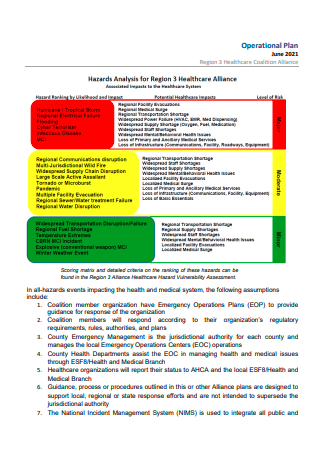
Healthcare Alliance Operational Plan
download now -
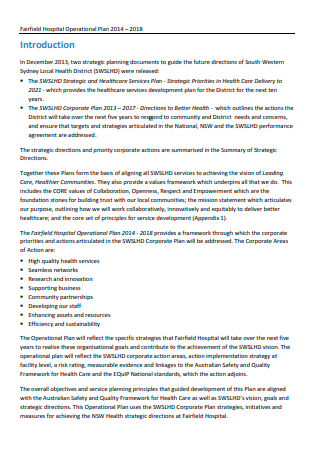
Healthcare Hospital Operational Plan
download now -
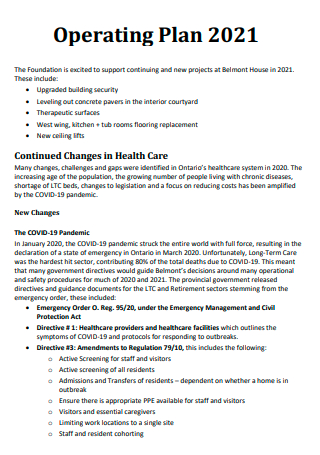
Draft Healthcare Operational Plan
download now -
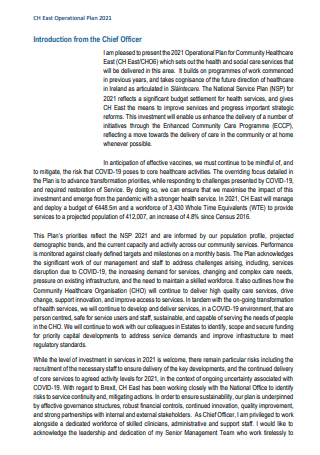
Community Healthcare Operational Plan
download now -
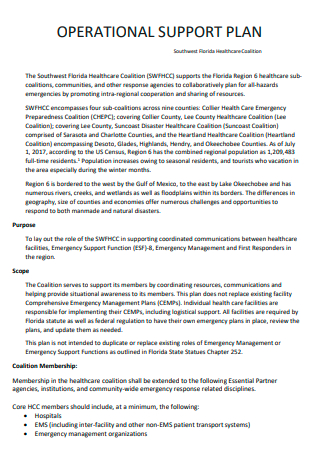
Healthcare Operational Support Plan
download now -
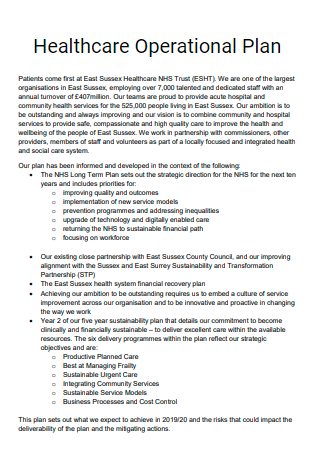
Healthcare Operational Plan Example
download now -
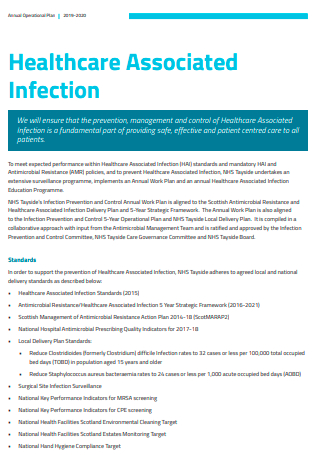
Healthcare Annual Operational Plan
download now -
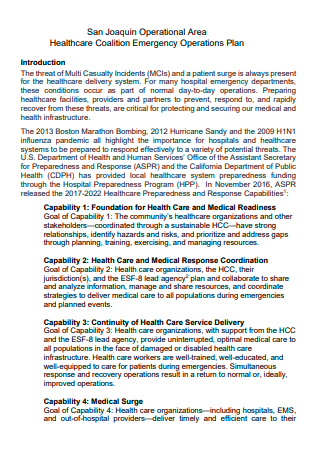
Healthcare Coalition Emergency Operation Plan
download now -
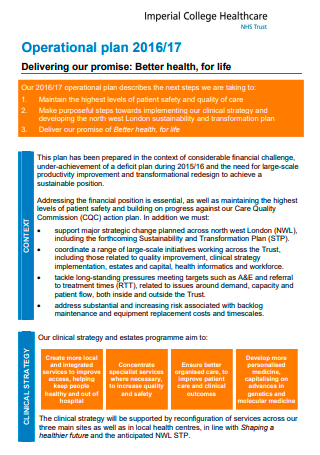
Healthcare Operational Plan in PDF
download now -
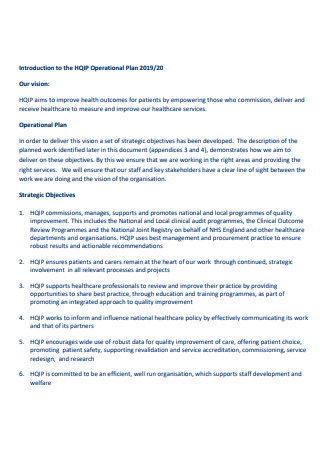
Basic Healthcare Operational Plan
download now -
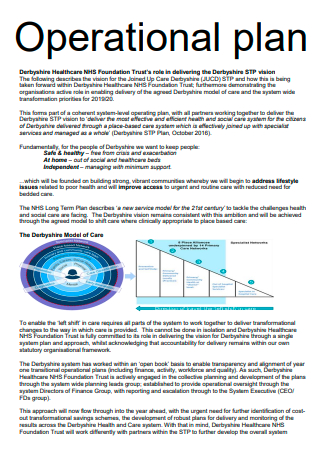
Standard Healthcare Operational Plan
download now -
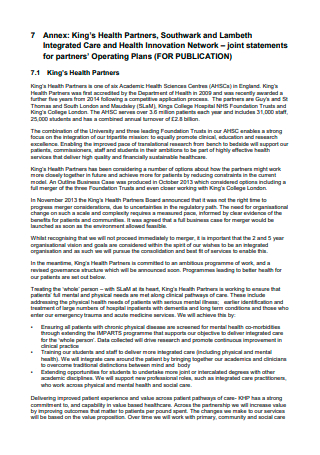
Formal Healthcare Operational Plan
download now -
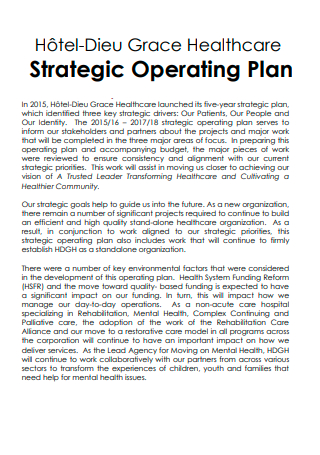
Healthcare Strategic Operational Plan
download now -
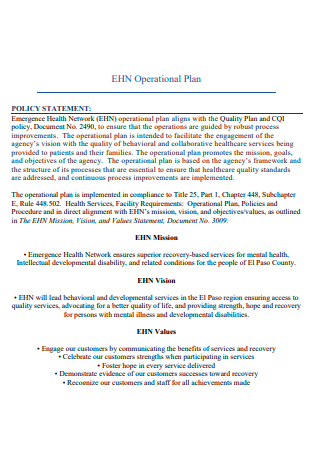
Simple Healthcare Operational Plan
download now -
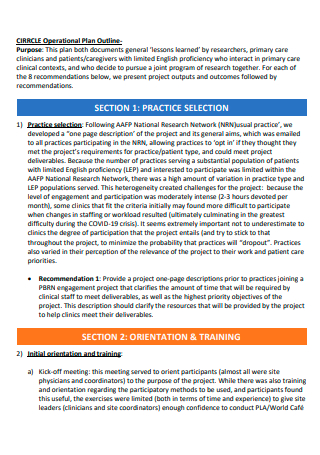
Healthcare Operational Plan Outline
download now -
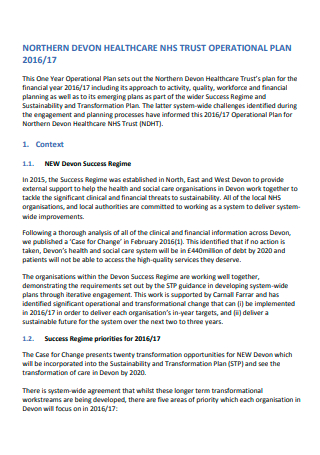
Healthcare Trust Operational Plan
download now -
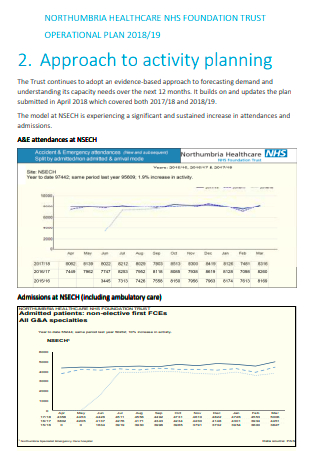
Healthcare Foundation Trust Operational Plan
download now -
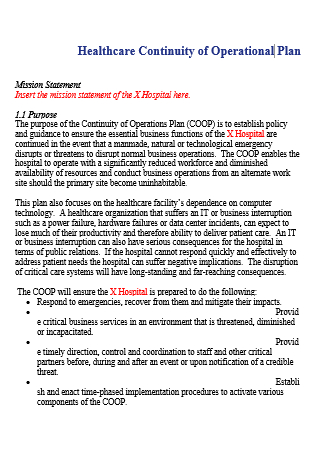
Healthcare Continuity of Operational Plan
download now -
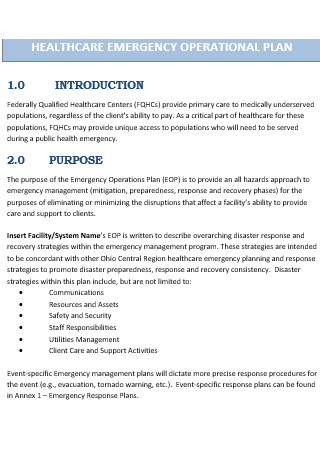
Healthcare Emergency Operational Plan
download now
FREE Healthcare Operational Plan s to Download
18+ Sample Healthcare Operational Plan
What Is a Healthcare Operational Plan?
Different Types of Healthcare Operational Plans
Benefits of a Healthcare Operational Plan
How to Write a Healthcare Operational Plan
FAQs
What are some examples of healthcare operational plans?
What are the key elements in a healthcare operational plan that should be included?
What are the crucial steps in operational planning?
Why is emergency management essential in healthcare?
What are the most fundamental factors of healthcare emergency preparedness?
What Is a Healthcare Operational Plan?
A healthcare operational plan is a comprehensive and well-coordinated action plan that demonstrates how a healthcare institution, hospital, or medical facility creates a cohesive development strategic plan for major operations and emergency preparedness, resilience, and response to preserve life, mitigate risks, and promote recovery. It is an effective strategic planning tool for healthcare professionals and medical project managers with the aim of developing systematic plans to be prepared for extreme or rare events and allow responders to operate safely and effectively. So, all health organizations in public, private, and voluntary sectors need to have timely and organized operational plans to undertake and engage.
Based on a published article, the healthcare industry takes more than 10% of the GDP of most developed countries like the US and this figure will later become 18% by the end of 2019. This is because the US is the largest employer in the healthcare sector, spending considerably more than the average. Moreover, 1 in 8 US citizens is employed in the healthcare industry. Thus, all types of executives and professionals in a healthcare institution or hospital need to be always prepared to coordinate, cooperate, and collaborate with other partners and organizations at all governmental levels when sudden crises and emergencies occur, regardless of the type, scale, or severity of the events. Most importantly, public health agencies should refine public health lead and support roles, assignments, and responsibilities with various partners and stakeholders. Design a compelling healthcare strategic operational plan to elevate the key operations and emergency preparedness of state and local public and private health systems.
Different Types of Healthcare Operational Plans
The CDC or Center for Disease Control and Prevention encourages many healthcare departments and institutions to organize and support emergency preparedness and response using an emergency management plan to help build and improve public health emergency response capability at the national, state, and local levels. There are different types of healthcare operational plans that health institutions and medical professionals use in their work.
1. Healthcare Alliance Operational Plan
A healthcare alliance operational plan or an emergency response plan for healthcare is important to manage and prevent all hazard events in a specific region. Create a scoring matrix and detailed criteria on the ranking of the hazards from major to minor hazards that can be found in the healthcare alliance hazard vulnerability assessment of the region. Define the hazard ranking by likelihood and impact, potential healthcare impacts, and risk level. After that, explain the assumptions include that may affect the health and medical system. For example, add in the assumption that the members will respond according to their organization’s regulatory requirements, rules, authorities, and plans.
2. Community Healthcare Operational Plan
A healthcare operational plan for the community is a type of community action plan made to set out the health and social care services that will be delivered in the area. It provides the purpose, goals, objectives, activities, and methods of the operational plan to advance the priorities of the community and offer medical services to the people in the community. Highlight in this plan that it fully acknowledges the significant work of the management and staff to address arising challenges like services disruption, changing and complex needs, and the necessity to maintain a skilled workforce. Inform the readers of your plan that the community healthcare organization will continue to deliver high-quality care services, drive change, support innovation, and improve access to services.
3. Healthcare Annual Operational Plan
Create an annual operational plan for your healthcare institution to ensure the prevention, management, and control of widespread diseases to provide effective, safe, and patient-centered care to all patients. Describe the standards and mandatory policies, as well as other extensive programs implemented in the annual work plan. Make sure that this plan is aligned with the standards and 5-year strategic framework. For the standards, add to the list of local and national delivery standards that the plan will adhere to the healthcare-associated infection standards, antimicrobial resistance/healthcare-associated infection 5-year strategic framework, and other local delivery plan standards.
4. Healthcare Coalition Emergency Operation Plan
Prepare a simple healthcare coalition emergency operation plan for your hospital emergency departments. It will allow healthcare facilities, providers, and partners to prevent, respond to, and quickly recover from the threats. This is crucial to protect and secure their medical and health infrastructure. Point out the significance for hospitals and healthcare systems to be prepared to respond effectively to a wide array of possible threats and the major healthcare preparedness and response capabilities such as the foundation for health care and medical readiness, health care and medical response coordination, and continuity of health care service delivery.
5. Healthcare Strategic Operational Plan
Develop a strategic operational plan for your healthcare system. Identify the three primary strategic drivers: our patients, people, and identity. This plan serves to inform partners and stakeholders about the projects and major work that will be accomplished in the three major areas of focus. Review the primary pieces of work to ensure alignment and consistency with the existing strategic priorities. Use this plan to help guide your management into the future. Also, include work that will continue to establish the healthcare institution as a standalone organization.
Benefits of a Healthcare Operational Plan
Operational planning for healthcare institutions is a fundamental strategic planning tool to translate government policies and strategic goals and objectives into daily management activities. Achieve alignment between planning and budgeting in your healthcare operational plan while considering specific institutional contexts and relationships between partners and stakeholders.
How to Write a Healthcare Operational Plan
Healthcare operations include a hospital’s administrative, financial, and legal activities, as well as patient case management and medical practice human resources. Write a clear and well-integrated operational business plan for your health and safety coordination plan effectively to set the rules, expectations, framework, operations, and strategies in an orderly manner.
Step 1: Accumulate the Healthcare Needs and Projects
Identify all of the possible needs and projects that could be added to the healthcare operational plan. Create a running list of prospective projects and include any team member on the list. Use various forums, risk management meeting minutes in team meetings, departmental leadership meetings, vendor meetings, discussions among team members, and discussions with customers to identify the projects needed for the plan.
Step 2: Ruminate and Germinate the Operational Plan
Build the first draft of the healthcare operational plan with the team. Actively think about each prospective project and how it is suitable for the bigger strategy of the department. Discuss each project and prioritize the major projects. Assign each project a low, medium, or high priority according to the needs of the department, and the alignment of the project to the departmental or hospital strategic goals. Then, the possible projects of the healthcare operational plan are designated among team members at one or two team meetings. Determine the major elements that are missing from the project plan and review the timing and overlap of the projects while discussing the goal for each project.
Step 3: Make the Second Draft
For the second draft of the healthcare operational plan, pay attention to the projects within each strategic domain. Make sure that each team member has at least one prospective project. Complete the second draft of the healthcare operational plan a month prior to the beginning of the fiscal year.
Step 4: Set the Major Goals, Objectives, Strategies, and Measures
After the draft, start working on creating major goals, objectives, strategies, and measures of success for each project. For example, if your team needs to work on improvement projects, set clear and realistic goals, objectives, and methods that your team will implement, as well as other medical staff involved in the operational plan. Encourage active participation with your team members while developing the healthcare operational plan.
Step 5: Refine and Execute the Operational Plan
Review your entire healthcare operational plan carefully and ensure to fully include all the critical points or key elements in your document. Ask your team members to provide feedback regarding the usefulness and order of the plan’s content. Check if there exist some grammatical or typographical errors in the plan. Revise and execute your operational plan when you’re finished.
FAQs
Some examples of healthcare operational plans are the healthcare strategic operational plan, formal healthcare operational plan, healthcare hospital operational plan, community healthcare operational plan, healthcare annual operational plan, healthcare coalition emergency management and response operational plan, and healthcare emergency operational plan.
The key elements that should be included in a healthcare operational plan are clear and realistic objectives, activities, desired results, quality standards, hospital staffing, and resource requirements, execution timetables, and progress monitoring process.
The crucial steps in operational planning are analyzing the vision of the organization, identifying the main goals and strategy, planning out activities, assigning roles and responsibilities, and monitoring and adjusting the operational methods and strategies.
Hospitals and other healthcare facilities and medical institutions should have an event emergency action plan and an emergency response system because emergency management in healthcare enables the personnel to assess issues and problems that could happen during a real disaster or emergency crisis and allows for the further improvement of the processes and systems.
The most fundamental factors of healthcare emergency preparedness are setting daily preparedness practices to meet accreditation standards, facilitating effective communication plans and systems to mitigate the loss of life and keep responders safe, maintaining strong leadership, testing emergency response plans with community partners and organizations, and learning emergency preparedness from available healthcare emergency training resources.
What are some examples of healthcare operational plans?
What are the key elements in a healthcare operational plan that should be included?
What are the crucial steps in operational planning?
Why is emergency management essential in healthcare?
What are the most fundamental factors of healthcare emergency preparedness?
Whether you are working on the response and recovery of an emergency in a hospital or facilitating any preplanned event such as a public health vaccination campaign, develop a clear action plan for healthcare operations and emergency management while using the incident command system. Define your major goals, objectives, strategies, and processes to solve issues with command and control, communications, and resource management. Plus, we have included several healthcare operational plan samples that you can quickly download and use including healthcare business emergency action plan, community healthcare operational plan, and other healthcare operational strategic planning templates and action plan examples.
